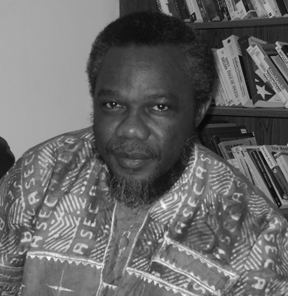
Ask Not For Whom the Bell Tolls: A Eulogy to Tarty Teh
By: Theodore Hodge
The Perspective
Atlanta, Georgia
March 30, 2012

Ask Not For Whom the Bell Tolls: A Eulogy to Tarty Teh
By: Theodore Hodge
The Perspective
Atlanta, Georgia
March 30, 2012
 |
|
Theodore T. Hodge
|
It was quite moving and touching to hear how his children and close relatives, and friends of the family, mourned his passing; their grief and sorrow was at times unbearable to sit through. Many a tear was shed in his profound memory. Obviously, he was a caring family man.
In the larger community, some will remember him as an untiring champion of human rights; others will remember him as simply a brilliant storyteller, but perhaps as a rabble-rouser or even a demagogue. Many will remember him as a brilliant strategist and a persistent and fearless fighter and an advocate for Justice. But where others saw him as a moral champion for the underclass, others saw him as a controversial and polarizing figure. The common saying, “One man’s freedom fighter is another man’s terrorist”, could be applicable to him. But that was part of the beauty of his life: He wore many different hats.
After all is said and done, I will remember Tarty Teh firstly as a great writer of prose; he had a way with words. But mostly, I admired him because of his tirelessness, his consistency, his tenacity, and his audacity to have a point of view and express it without reservation or apology. Tarty Teh was a radical and remained unapologetic; he earned my respect for that.
Liberia is a country in whose constitution is enshrined the basic tenet of freedom of expression. In theory, everyone is entitled to the right of freedom of speech. But the unwritten national ethos dictates a culture of “group-think”, therefore in practice, the Liberian culture does not encourage strong expressions of individual displeasure with the political or social system. People who insist on exercising their right to free speech are usually considered “radical” or even “deviant”. Liberia has been, and continues to be, a country where the leadership, especially the president, is generally seen as above reproach. It is within this complex dichotomy that Tarty Teh lived. Was he to be a conformist to the national ethos or a firebrand who adhered to his constitutional right of free and independent speech? For Tarty Teh, the choice was easy; he gladly and boldly embraced the appellation of radicalism.
What we need to remember about Tarty Teh is the fact that he had a story to tell. The narrative was his and he chose how to deliver it. He told his story, the story of his people. He championed a certain cause, the cause of the underdog. He saw the Liberian society as being comprised of two sectors, the privileged and the marginalized. Mr. Teh knew the difference between right and wrong, but in his view, it was not enough to merely realize the difference between the two; it was one’s responsibility, as a public intellectual, to espouse and elucidate these differences. And that is what Mr. Teh did so brilliantly and unceasingly.
Mr. Teh did not see himself as being in a popularity context. Expressing popular opinions was not his agenda. I don’t think it mattered much whether he was right or wrong; it didn’t matter whether his views were politically correct or not. What mattered to him is what should matter to all of us: We all do have a story to tell. And we do have an obligation to find a narrative that fits our perspective; not necessarily a popular perspective, but our personal perspective... Mr. Teh was a genius to have realized that.
When I heard of Mr. Teh’s passing, I couldn’t help but remember John Donne’s famous lines:
No man is an island,
Entire of itself.
Each is a piece of the continent;
A part of the main…
Each man's death diminishes me,
For I am involved in mankind.
Therefore, send not to know
For whom the bell tolls,
It tolls for thee.